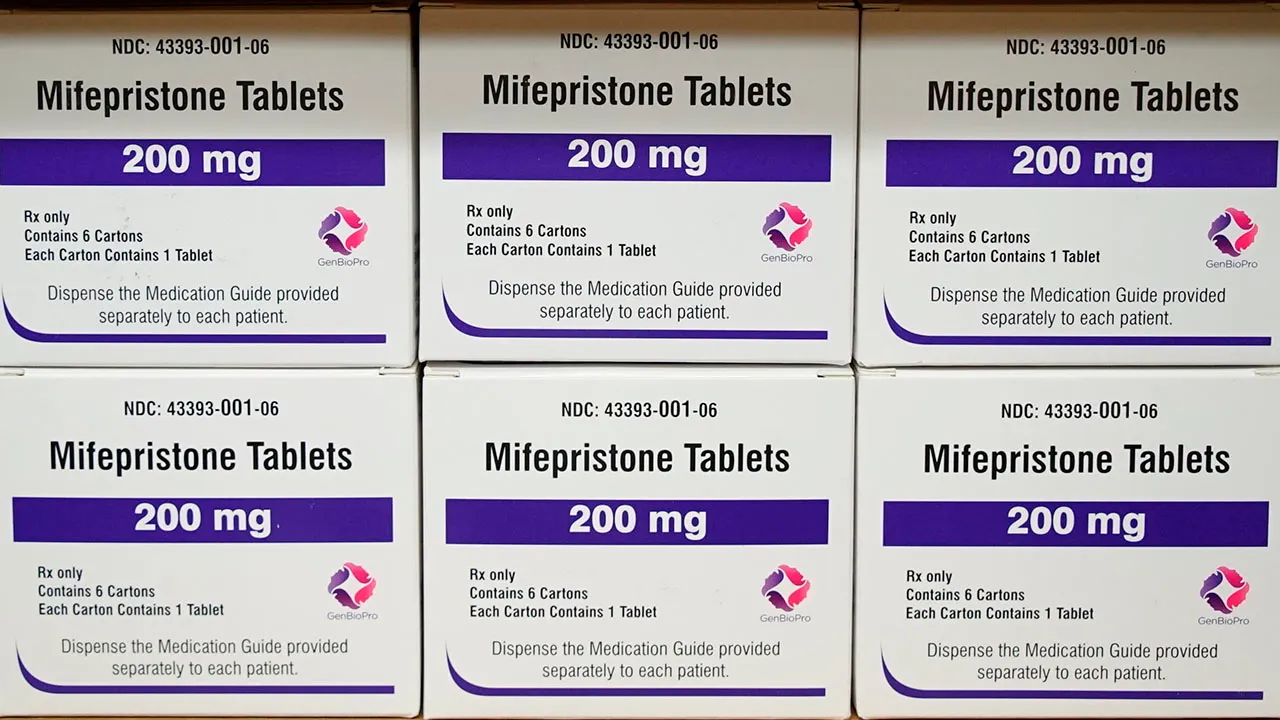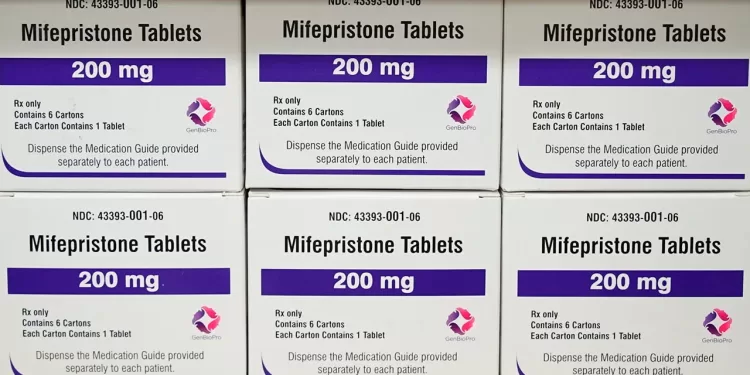
The Justice Department said Tuesday that the U.S. Postal Service can continue to deliver abortion medication in Republican-run states that limit access since the Supreme Court overturned Roe v. Wade.
In a legal opinion, the DOJ’s Office of Legal Counsel (OLC) said that the mailing of mifepristone and misoprostol, two prescription drugs that are commonly used to produce abortions, does not violate the Comstock Act. The original 1873 law originally worked to ‘prevent the mails from being used to corrupt the public morals,’ but the 150-year-old statute worked to prevent mailing of writing later deemed protected under the First Amendment’s free speech clause.
Congress also has largely repealed its references preventing contraceptives – such as the birth control pill – to be sent by mail.
‘Federal law does not prohibit the use of mifepristone and misoprostol. Indeed, the U.S. Food and Drug Administration (‘FDA’) has determined the use of mifepristone in a regimen with misoprostol to be safe and effective for the medical termination of early pregnancy,’ the opinion says. ‘Moreover, there are manifold ways in which recipients in every state may use these drugs, including to produce an abortion, without violating state law. Therefore, the mere mailing of such drugs to a particular jurisdiction is an insufficient basis for concluding that the sender intends them to be used unlawfully.’
The opinion covers abortion drugs sent by other carriers, such as UPS and FedEx, but does not guarantee complete legal immunity should local prosecutors where state laws prohibit abortion choose to pursue cases against senders or recipients. And the opinion also does not cover other federal statutes beyond the Comstock Act.
Yet, the Justice Department’s move was one of two taken Tuesday by the Biden administration to codify abortion access, as Congress narrowly shifted to Republican control following the midterms. The Food and Drug Administration on Tuesday finalized a rule change that broadens availability of abortion pills to many more pharmacies, including large chains and mail-order companies.
The Biden administration partially implemented the change last year, announcing it would no longer enforce a long-standing requirement that women pick up the medicine in person. Tuesday’s action formally updates the drug’s labeling to allow many more retail pharmacies to dispense the pills, so long as they complete a certification process.
The change could expand access at both brick-and-mortar stores and online pharmacies. Women can get a prescription via telehealth consultation with a health professional and then receive the pills through the mail, where permitted by law.
The Associated Press contributed to this report.

The Justice Department said Tuesday that the U.S. Postal Service can continue to deliver abortion medication in Republican-run states that limit access since the Supreme Court overturned Roe v. Wade.
In a legal opinion, the DOJ’s Office of Legal Counsel (OLC) said that the mailing of mifepristone and misoprostol, two prescription drugs that are commonly used to produce abortions, does not violate the Comstock Act. The original 1873 law originally worked to ‘prevent the mails from being used to corrupt the public morals,’ but the 150-year-old statute worked to prevent mailing of writing later deemed protected under the First Amendment’s free speech clause.
Congress also has largely repealed its references preventing contraceptives – such as the birth control pill – to be sent by mail.
‘Federal law does not prohibit the use of mifepristone and misoprostol. Indeed, the U.S. Food and Drug Administration (‘FDA’) has determined the use of mifepristone in a regimen with misoprostol to be safe and effective for the medical termination of early pregnancy,’ the opinion says. ‘Moreover, there are manifold ways in which recipients in every state may use these drugs, including to produce an abortion, without violating state law. Therefore, the mere mailing of such drugs to a particular jurisdiction is an insufficient basis for concluding that the sender intends them to be used unlawfully.’
The opinion covers abortion drugs sent by other carriers, such as UPS and FedEx, but does not guarantee complete legal immunity should local prosecutors where state laws prohibit abortion choose to pursue cases against senders or recipients. And the opinion also does not cover other federal statutes beyond the Comstock Act.
Yet, the Justice Department’s move was one of two taken Tuesday by the Biden administration to codify abortion access, as Congress narrowly shifted to Republican control following the midterms. The Food and Drug Administration on Tuesday finalized a rule change that broadens availability of abortion pills to many more pharmacies, including large chains and mail-order companies.
The Biden administration partially implemented the change last year, announcing it would no longer enforce a long-standing requirement that women pick up the medicine in person. Tuesday’s action formally updates the drug’s labeling to allow many more retail pharmacies to dispense the pills, so long as they complete a certification process.
The change could expand access at both brick-and-mortar stores and online pharmacies. Women can get a prescription via telehealth consultation with a health professional and then receive the pills through the mail, where permitted by law.
The Associated Press contributed to this report.
















